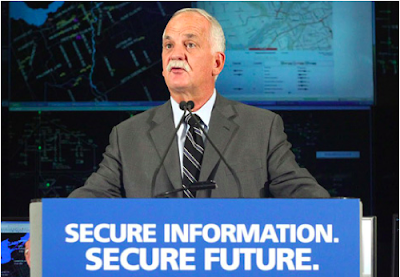
Canada is in the midst of a federal election and you can read posts covering it by myself on r h i z o m i c o n and Impolitical on our respective blogs. Lorne Gunter in the National Post is mad as hell and he’s not taking it anymore. His beef? All of this social media in politics hoopla::
“Oh, please, spare me. Social media – services such as Twitter and Facebook – are not going to swing the current federal election away from the Tories and in favour of the Liberals, NDP or Green party, no matter how much anti-Harper activists and reporters wish they could.”
While he acknowledges that social media is a useful tool, he’s also making sweeping generalizations about their effects::
“But they don’t win or lose elections on their own (or pull off Middle Eastern revolutions), no matter how much social media devotees in newsrooms and elsewhere claim they do.”
He seems particularly perturbed by the shitharperdid website and this supposedly gushing Vancouver Sun article.
“The Vancouver Sun story claims 2 million web surfers quickly hit on the www.shitharperdid.ca site. Great, so they went to a site run by like-minded lefties and had their prejudices confirmed. Whoopee.”
He drifts into a Malcolm Gladwell argument that social media promotes just “one click activism” and doesn’t really engender any real persuasion. Here on ThickCulture, we have discussed Malcolm Gladwell’s downplaying and concerns about social media in the social activism arena, here, here, and here.
Lorne argues that social media campaigns are largely ineffectual, citing anti-prorogation and strategic voting efforts. Then, he loses it and goes off on Harper Derangement Syndrome as the latest manifestation of a leftist affliction along the lines of Bush Derangement Syndrome. Well, the left has no monopoly on demonizing the other side.
The problem with Lorne’s analysis is his narrow definition of success and assumption that social media merely preaches to the converted. There are three things wrong with what he’s saying:
- It assumes a narrow definition of efficacy
- It ignores the “mere exposure” effect
- It ignores the marketing concept of “segmentation”
Efficacy
Gunter suggests that social media doesn’t win elections on their own, but nobody is really advocating that they are. Naheed Nenshi, the Calgary mayor whose campaign last fall was attributed to the use of social media notes that his campaign was based on ideas. Social media helped to personalize his campaign to make it salient to voters. I don’t think Gunter would quibble with this, but I think he underestimates the effects of content that “preaches to the converted” and the persuasive effects of content that goes viral.
When the March 2007 anti-Hillary Clinton Vote Different video went viral {posted by a designer who worked for the firm that designed Obama’s website}, Obama’s polling numbers didn’t budge. Guess what? That month, his contributions did, quite considerably. My point being is that the effects of social media may not be straightforward and political strategy needs to take account of this. The preaching to the base aspect of social media that Gunter views as a waste of time can help a campaign motivate its loyals and turn them into activists. Social media can also increase the exposure and salience of a party, which segues into the next issue.
The “Mere Exposure” Effect
Decades ago, social psychologist Robert Zajonc found that people can be persuaded to have positive inferences about an object {or brand, party, or candidate} through increased exposure. So, controlling for aesthetics and other source material and content characteristics, Zajonc found that increasing exposure leads to higher favourable attitudes. In effect, a “familiarity breeds contentment” route to persuasion that doesn’t require any real substance to the content. This explains how the ubiquity of Starbucks builds the brand with relatively little advertising. Social media can have the same effect. Anti-Harper sites can persuade by just going viral and entering into voter consciousness. The challenge is cutting through the clutter to get that exposure, i.e., coming up with something that resonates and goes viral.
Segmentation: It’s the Young Voters, Stupid
A big topic this election is the youth vote. The 2008 turnout for those 18-24 was 37%, compared to 58% overall, a historic low. Interestingly, some view this as likely to worsen, as prevailing attitudes deem voting as a choice rather than a duty [Also, see StatCan 2005 pdf youth voting/civic engagement report]. The youth vote is a prime target of sites like shitharperdid.ca and the youth…have more of a tendency to not vote Conservative. Getting the youth mobilized, along the lines of the Rock the Vote campaign in 1992, is tricky business that cannot be easily replicated. Nevertheless, sites targeting the youth aren’t necessarily “one-click activism” that has no effect.
It’s About Engagement
At the end of the day, engagement matters. I think it’s the height of arrogance for Gunter to state that social media cannot swing the federal election. I’m curious what Gunther’s thoughts are on the Conservative Party’s efforts to use the web and social media to scare voters about how there “might” be an iPod tax with false claims that IP expert Michael Geist has debunked.
The A Channel news in Victoria gets it, as does NDP Leader Jack Layton who used the Twitter term “#fail” {hashtag fail} in the English debates last week::
The idea that social media can increase youth engagement of “square” politics through sites young people use and help to make politics less intimidating are part of the democratizing potential of the web.





